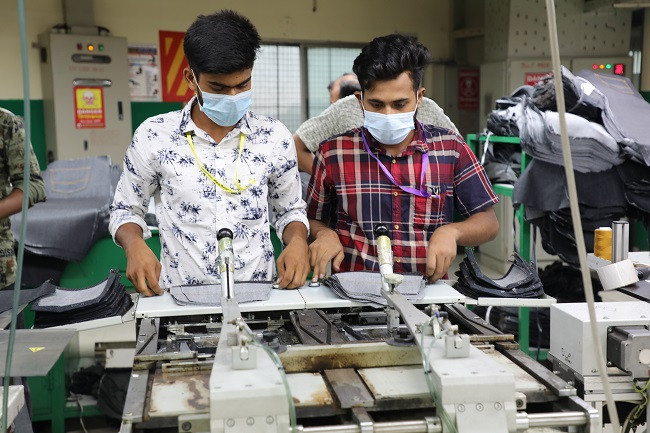Despite the widespread movement for political transition in Bangladesh, there has been no devastating blow to the garment industry in Bangladesh except for some isolated incidents. It is a manifestation of the positive perception of the vast majority of people about the garment industry in Bangladesh.

Apart from some isolated incidents, the garments factories as a whole have been saved from the destructive activities of miscreants mainly by the combined efforts of the garment industry owners and workers.
The general students and people of Bangladesh are well aware that the garment industry is one of the driving forces of Bangladesh’s economy. So the students and common people along with garment workers did not let the political transition movement affect the garment industry.
Since there was a possibility of damage, Bangladesh Garments Manufacturers and Exporters Association (BGMEA) and other organizations requested the owners to close all the garment factories across the country, considering the safety of the workers and the garment industry.
However, despite the call for closure of factories, many garment factories continued their operations allowing workers to join work voluntarily. Students and workers collectively tried to keep the wheels of the economy moving without interruption.
Also, because the garments were kept open, miscreants could not carry out much destructive activities in the factories. This is unprecedented in Bangladesh.
According to a business leader, workers have reported to work as usual in all sections of the factories. Nearby factories were also functioning without any issues.
The industrial police have also tried to provide security in general. Imran Ahmed, additional superintendent of industrial police-2 in Gazipur said, “We have increased vigilance and patrolling in important areas to ensure the safety of factories and workers. As a result, the situation in the industrial area was normal.
The Chief Production Officer (COO) of a reputed factory said that many workers have joined work since morning. Production is ongoing in all sections. Nearby factories are also working. There was no problem.”
However, many garment workers joined the movement along with the students and general people.
Notably, 48 young entrepreneurs from the garment and textile industries expressed solidarity with the students’ anti-discrimination movement.
“We, as members of the next-generation apparel business community of Bangladesh, expressing solidarity with the demand made by the people of Bangladesh,” according to a statement signed by the representatives of the business leaders.
However, a total of 67 factories were reportedly vandalized by isolated miscreants during the agitation. Among them, there are 45 factories in Gazipur, 15 in Narayanganj, five in Savar-Ashulia and other factories. In many places, the workers defended their factories.
Besides, many entrepreneurs have refrained from opening factories due to the law and order situation has not improved significantly yet.
















